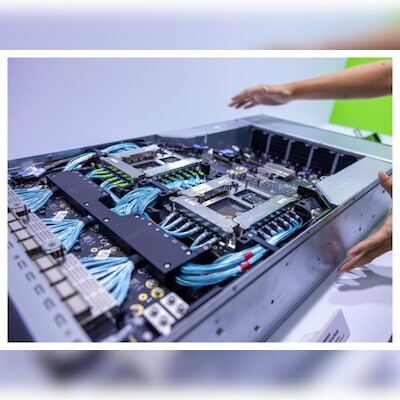Semicon 2.0 scheme to raise subsidies; large chip design firms to benefit | News

)
The design-linked incentive scheme forms part of the government’s Rs 76,000 crore semiconductor initiative. | Representational Photo
The Semiconductor Incentive Scheme 2.0, which is likely to be announced within the next three-to-four months, is expected to offer subsidies not only to startups but also to larger companies involved in chip design.
Under the new scheme, the subsidy amount is likely to increase beyond the current limit, according to a report by the Financial Express. The report comes a week after the Union minister for electronics and IT, Ashwini Vaishnaw, indicated that the new scheme will significantly expand upon Semicon 1.0, encompassing the entire value chain from materials and wafers to fabs and chip assembly units.
Semicon 2.0: An upgrade from the existing scheme
The new scheme will mark a departure from the existing one, which currently supports startups by reimbursing 50 per cent of their design-related costs, up to a ceiling of Rs 15 crore. This cap is expected to be raised under the new scheme. If the government decides to provide a 50 per cent subsidy on project costs for larger chip design firms, companies such as L&T Semiconductor Technologies, Qualcomm, MediaTek, and NXP would stand to benefit.
A likely new condition is that firms must ensure the intellectual property (IP) of the chip remains in India to qualify for the incentive. Chip design is a critical initial step in the semiconductor production process, laying the groundwork for subsequent stages such as manufacturing, assembly, and packaging.
Design-linked incentive scheme
The design-linked incentive scheme forms part of the government’s Rs 76,000 crore semiconductor initiative. This includes Rs 1,000 crore allocated specifically for startups engaged in chip design. In addition to the Rs 15 crore subsidy, the government offers deployment-linked incentives of 4-6 per cent of net sales over five years, up to a ceiling of Rs 30 crore per application. These incentives support approved applicants whose semiconductor designs for integrated circuits (ICs), chipsets, system-on-chips (SoCs), and IP cores are incorporated into electronic products.
So far, around 13 startups have been approved under the scheme, though progress has been slow due to challenges in finding suitable products and customers. A lack of external funding from venture capitalists and other investors has also been a hurdle. The revamped scheme aims to promote more domestically designed chips, particularly in cutting-edge areas such as AI and data centres.
Several companies, including Mindgrove Technologies, Saankhya Labs, WiSig Networks, and MosChip Technologies, have already received approval for their chip designs. Many large firms, including L&T Semiconductor Technologies and NXP, have also shown interest in submitting proposals once the scheme is available to them.
The upcoming ISM (India Semiconductor Mission) 2.0 is expected to broaden the scope of the semiconductor design ecosystem to include larger players generating product IP in India. The government plans to develop a comprehensive ecosystem, including equipment, specialised materials, chemicals, and gases, under the new initiative.
First Published: Sep 16 2024 | 3:05 PM IST




